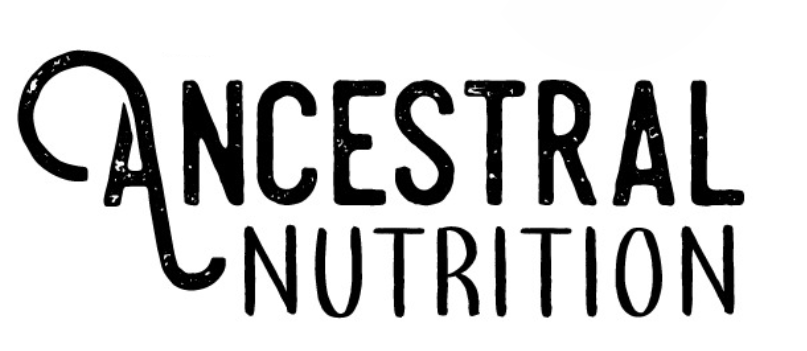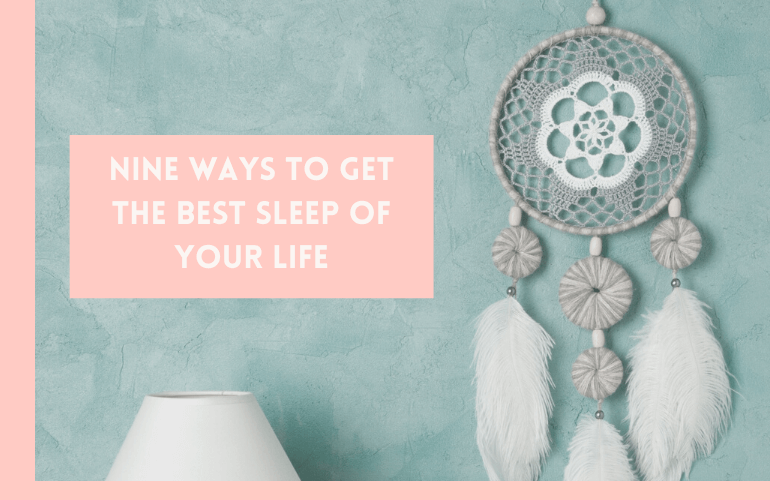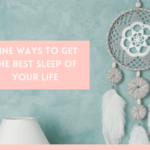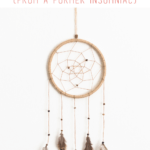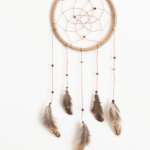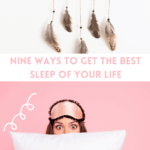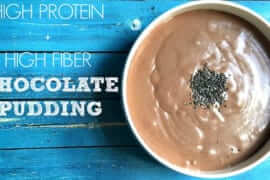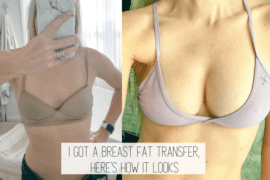After a bout of particularly brutal insomnia, taking damn near every natural supplement and millions of Benadryl, seeing specialists and reading everything I could about insomnia – here are nine ways to get the best sleep of your life.
I have had trouble sleeping on and off since I was a kid. I am a light sleeper. If it’s two degrees too hot (literally) I wake up. If there’s light I wake up. If Scott breathes too loud, I wake his ass up to shut up. No I am not kidding.
My history with sleep issues and insomnia.
When the pandemic began, my baby (who had a sleep disorder) finally started sleeping through the night at 19 months. I think it was a combination of sleeping roughly 4 hours a night for the past year and a half and the stress of the pandemic – but I couldn’t sleep. I just couldn’t sleep.
I’d go to bed at 10, wake up at 12am, and literally be awake until 5am, and wake up at 6am with the baby. Like clockwork. I’d go to bed at 10, exhausted – and without fail wake up two hours later.
It got so bad that I started to dread going to sleep. I was so stressed from not sleeping. I was furious. I was upset. I was angry.
Many nights, Scott found me in our living room crying hysterically at 4am. It got to the point where I’d wake up and just cry, I was emotionally and physically exhausted. It was absolutely infuriating to not be able to sleep. Some nights, I’d take various pills and supplements to try to help. One night I remember taking 17 pills – and I’m not much for pills. They included Benadryl, passionflower, a natural sleep supplement, lemon balm and a few others. I took some, took some more, took some – just desperate to get to sleep. I finally cried myself to sleep at 6am.
My days were spent lethargic, anxious, irritable. I’d snap at my kids and feel terrible. It was one of the worst times of my life. But because I went through that, I know how to get out of it. I know how to sleep, and I know how to help others to sleep.
Here are Nine Ways To Get The Best Sleep of Your Life
Go to bed and wake up at the same time each day.
Having specific sleep and wake times helps our bodies and brains get on a schedule. And our brains love a schedule. If you’re wake up one day at 6am, another day at 8:30am, another day at 7pm – sleep will be inconsistent at best.
The ideal schedule is bed at 10pm, wake at 6am. This is because we have been exposed to enough darkness by 10pm that our melatonin production has been amped up. I have friends that go to bed at 7pm and wake up at 3am to get ahead of the day, but this doesn’t allow for the most restful, deep sleep.
The reality is that our bodies are meant to sleep with the moonlight and wake with the sunlight. This is how our bodies and brains sleep best on this schedule.
Consistently sticking to a bedtime helps our body actually go to sleep at that time. Waking at the same time each day helps our bodies wake up rested, energized and ready for the day!
Exposure to first morning light.
This is a new favorite! Exposure to first morning light not only helps sync our circadiam rhythm, it helps boost the mood!
Studies have shown that bright light exposure in the morning balanced melatonin production, improves motor skills and improves cortisol production and body temperature. Light shuts down melatonin production while simultaneously signaling to feel-good neurotransmitters to be released (source).
Exercise.
Exercise is not only a mood booster, it’s a total game changer for sleep. Exercise literally fights insomnia. One study demonstrated that patients who began exercising fell asleep 13 minutes faster, stayed asleep 18 minutes longer and had fewer nightly wakings.
Exercise helps balance hormones, resets the circadian clock and improves brain health and cardiovascular function. numerous studies (including the one above)
Eat an early (but time appropriate) dinner.
Digestion actually plays a huge role in sleep, the ability to fall asleep and the quality of sleep. Imagine going to bed right after a full dinner – you’d be uncomfortable. Alternatively, imagine eating dinner at 4:30. You might experience some hypoglycemia (low blood sugar) and wake up – or just wake up hungry.
Ideally, you want to fast for at least 12 hours a day to give your system time to rest and digest – properly. This could look like eating dinner at 6pm and not eating breakfast until 8am. Which is what I do. If you go to bed later or earlier, adjust accordingly. Get adequate protein (about 25 grams), which will help with sleep. Avoid sugar, processed food and processed carbs.
Just make sure you’re not eating dinner 3 hours prior to bedtime.
Keep it cold.
Studies have shown that the colder the room, the better. And this includes babies! My babies slept in cold rooms (but not lower than 67) with warm, safe clothing like sleep sacks over their pajamas. This is ideal.
The Sleep Foundation says the best temperature for sleep is 65 degrees, while doctors recommend anywhere between 60 and 69 degrees (but no higher). I keep it at a brisk 68 for bed.
Keep it dark.
Darkness is often overlooked but it signals to the body to produce melatonin, the sleep hormone. Light, whether natural or artificial, signals to the body that it is daytime. Even a small amount of light can make it difficult to fall asleep and stay asleep.
My husband and I use these sleep masks.
No naps.
Short, simple. I learned this one from the sleep doctor I saw. She emphasized absolutely no naps; they interfere with sleep rhythm and people often make up for sleep at night with sleep during the day. She said the body creates a sleep deficit and if you can wait to sleep until bedtime, it will be easier to fall and stay asleep. That if you slept during the day, it’s harder to fall asleep and stay asleep.
Bedtime routine.
Keeping a bedtime routine has always made a huge difference for me. Imagine if you were watching tv one night and then just plopped in bed to sleep, another night you went out for drinks with friends and came home and went right to bed, a third night you worked until 10 and went to sleep.
Your body works best with repetition.
You don’t need an hour long routine, but a routine is so, so helpful.
Here’s what I do:
- 9:15 – an alarm on my watch goes off to remind me to start winding down soon
- 9:20 – take my supplements (see below)
- 9:30 – shower, exfoliate my face, wash off all makeup
- 9:40 – cleanse with toner to get rid of any excess makeup, serum, moisturizer
- 9:45 – in bed reading
- 10 – pass out literally in two minutes
Supplement appropriately.
I do take supplements nightly, but this is what works for ME. This is not a prescription for YOU, but these are some of my favorites that I find helpful. Also, magnesium helps damn near everyone sleep and relax. Majority of the world is deficient.
- magnesium (glycinate is typical for stress and sleep, citrate is better for regularity – I actually prefer citrate from the same company)
- 25mg CBD capsules (use code ANCESTRAL15 for 15% off!)
- l-theanine
For when I truly cannot sleep, either fall asleep or get back to sleep, my husband and I both love the melatonin-free Luna supplement, made only with calming herbs like valerian, chamomile and lemon balm. I don’t love to take melatonin because it’s a hormone and because in the past it has made me groggy.
This supplement is the best I have ever tried, and I have tried over 25. It works quickly and you wake up refreshed!
